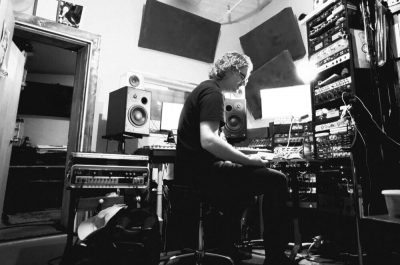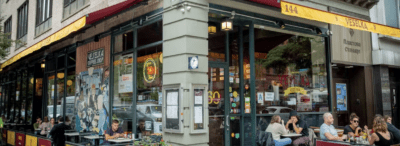Brooklyn 100 Influencer: Camille Rankine, Poet
Camille Rankine, poet and general griot, does everything in her power to cultivate a creative community where inclusivity, vibrancy and literature of all varieties abound. Though teaching at institutions such as Columbia and Brown have undoubtedly helped Rankine achieve notoriety in her field, she has derived a great deal of inspiration organizing poetry programs for the Brooklyn Book Festival and chairing the board of The Poetry Project. At the crux of her ideology is the belief that literature can be the platform upon which the voices of those who have been marginalized, demonized or oppressed can be heard and she aims to do everything in her power to facilitate that. One such way is by working with VIDA: Women in Literary Arts where she exposes gender disparity in publishing and provides a platform for women to share their stories.
How/why did you become involved in your line of work?
I’m a poet, and for me that means I’m involved in a lot of different kinds of work. Since poetry isn’t exactly what you’d call “lucrative,” I’ve sought out work that can actually feed me while also feeding my creative practice. I worked at Cave Canem Foundation, an organization champions black poets, for a few years, and when I moved on from that to teach creative writing, I stayed connected to the literary community in Brooklyn and beyond. Creative community is important to me, and essential to so many people who don’t have access to or feel supported by the structured communities that exist within universities and MFA programs. I like to contribute my time and energy toward efforts that help to build inclusive, vibrant literary spaces. I think it makes the world better.
Tell us a little bit about your present work, the Cliffs Notes version of your day to day and what is at stake:
Right now, I don’t have a full-time job, but I guess no one told my to do list. In addition to teaching at Columbia and Brown (yeah, it’s quite a commute), I work with Brett Fletcher Lauer to organize poetry programs for the Brooklyn Book Festival; I chair the board of The Poetry Project, where I’m assisting on a fundraising campaign for its 50th anniversary; and I work with some amazing feminists as a sort of jack of all trades for VIDA: Women in Literary Arts, which is volunteer run. I feel pulled in a million different directions most days. Lately, I start every morning poring over the news, discovering what fresh hell has been unleashed upon us by the Trump administration, figuring out what actions I can take to push back. Then there’s my own work—right now, a big part of that is reminding myself and others how vital the arts are, especially in this moment. And somewhere in between a hundred administrative tasks, a relentless inbox, and class prep, I try to write poems.
What do you find most fulling about your work?
Literature can be a platform for the voices of those who have been marginalized, demonized, oppressed, and an avenue for those voices to reach others. It’s a way to show someone the world from a vantage point other than their own. I think sparking that kind of understanding between people is imperative right now. And speaking for myself, it’s a thrill to know that even one person has read something I’ve written and felt moved by it. So to be able to aid in amplifying other voices, to help foster spaces for crucial conversation through VIDA, the Poetry Project, through the programs we curate at the Brooklyn Book Festival, through building a syllabus, even—that’s a privilege I feel grateful for.
What is your proudest achievement with this work and what is your greatest challenge?
I feel proud every day to be a part of VIDA—for the work we do to expose gender disparity in publishing, and especially for the platform we provide for women to share their stories through VIDA Review’s Reports from the Field column. Mostly I feel proud of the people who come together to make VIDA happen—heroes, all. And for myself, I feel most proud of deciding to do poetry for real, and then making it happen. Writing a book and seeing it on the shelf at Powell’s Books in Portland, where I spent so much time growing up—teenage Camille is high-fiving me for that, even if she’s side-eyeing me a bit for not becoming a lawyer, like she wanted. I think my greatest challenge is finding a way every day to keep this up: to keep writing, keep working to make meaningful contributions to the world, while also making money somehow.
What do you hope changes or improves (or continues!) in your field in the future?
So many incredible books are being written and published and celebrated by writers of color lately, and I want that to keep happening. I want doors to open and keep opening and stay open for every voice that’s ever felt shut out.
Who would you nominate for this list?
Heben Nigatu and Tracy Clayton.
Learn more about this year’s 100 Influencers in Brooklyn Culture.
Photo by Jane Bruce.
You might also like 




















